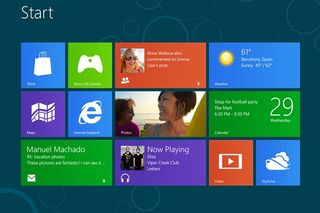ARM-based Windows 8 tablets facing delays
Sources claim Windows RT operating system could need a post-launch patch at the very least.

The ARM-based tablet version of Microsoft's highly-anticipated Windows 8 operating system might not be ready by the time the product ships, sources claim.
The software giant recently announced that several versions of Windows 8 will ship when the product goes on general release later this year, including one that's specifically designed for ARM-powered tablets called Windows RT.
The feeling is that they didn't have anywhere near enough time to develop Windows 8.
Microsoft will also be rolling out other versions aimed at tablet and PC users whose devices run on x86 processors, called Windows 8 and Windows 8 Pro.
However, according to sources within the Microsoft tech community, the development of Windows RT has been hampered by unspecified problems relating to the ARM chip it is built to run on.
It is feared this could mean the product will not be ready at launch.
One source, who spoke to IT Pro on condition of anonymity, blamed the alleged problems on the relatively short amount of time Microsoft leaves between operating system upgrades.
Get the ITPro. daily newsletter
Receive our latest news, industry updates, featured resources and more. Sign up today to receive our FREE report on AI cyber crime & security - newly updated for 2024.
"The feeling within the community is that they didn't have anywhere near as much time to develop [Windows 8], compared with the previous version, especially when you consider that they want it to be the number one operating system for phones, tablets, PCs and servers," said the source.
"That is a massive undertaking...and [not all the] products are ready now and they won't be on release."
This view was back by other sources who claimed the x86 versions are "more or less ready to go", but RT buyers will probably need a post-launch Windows 8 patch to iron out the bugs.
"I'm not sure this is going to be a massive deal, because I don't know anyone who thinks there [is] a market for a Windows RT tablet," another source added.
In response to this statement, Andrew Buss, service director at analyst Freeform Dynamics, said Windows RT should be a good fit for consumers.
"It is a brand new product and architecture for Microsoft, so it wouldn't be a surprise if it is taking a little longer that expected to develop. This might also mean it takes a little longer to find its feet in the market," Buss told IT Pro.
"Business users are unlikely to be early adopters, though, because you can't run legacy x86 applications on Windows RT. That shouldn't be as much of a concern for consumers," he added.
IT Pro approached Microsoft for comment on this story, and was awaiting a response at the time of publication.




